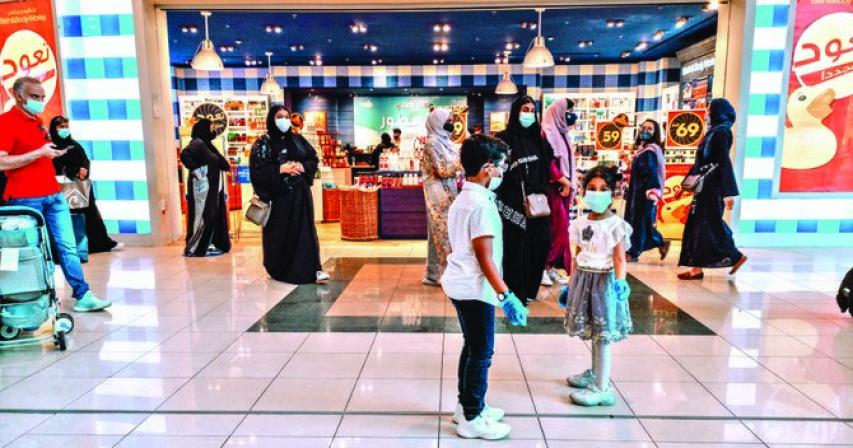Virus-weary Saudi citizens at risk of succumbing to ‘pandemic fatigue’

Saudi citizens weary of months of lockdown, restrictions, and precautionary measures due to the COVID-19 outbreak could be succumbing to “pandemic fatigue,” experts claim.
Long periods of staying vigilant and the stress of coming to terms with the “new normal” way of living, may have led to people dropping their guard over sticking to virus safety protocols.
A new Ministry of Health study has revealed that half of the recently confirmed cases of COVID-19 in the Kingdom were among youth who had not been adhering to prevention guidelines.
Ministry spokesman, Dr. Mohammed Al-Abd Al-Aly, said that although a steady reduction in the number of confirmed cases showed that the country was heading in the right direction in tackling the virus, the health crisis was by no means over.
“Epidemiological investigation teams tracking the spread have noticed that half of the confirmed cases recorded as of late are of people not adhering to proper protocols such as wearing masks and following social distancing measures in public places; most of them are of the youth demographic,” he added.
Despite the majority of people abiding with measures introduced by authorities to stop the spread of COVID-19, warnings about the dangers of not following precautionary measures were still falling on some deaf ears.
Instances of packed restaurants and cafes, long queues outside shops of people disregarding rules to keep 1.5 meters apart and crowded social gatherings in enclosed spaces have all been witnessed of late throughout the Kingdom.
Dr. Haya Zedan, a public health professional and vice dean of graduate studies and scientific research at the Saudi Electronic University in Riyadh, told Arab News: “In many ways people may be exhibiting what is called pandemic fatigue.”
According to health experts at the University of California (UC), in Davis, pandemic fatigue is defined as exhaustion as a result of COVID-19 and its effects on daily life making people careless or apathetic.
“Being vigilant for a prolonged period of time is exhausting both physically and mentally. It is a part of normal human behavior that people will flag in some ways sooner or later,” Zedan said.
“As the situation has gone on much longer than we have expected with numbers now exceeding the original projections, while we locked down completely when there were only a few tens of cases, life is now normal when there are thousands of cases.
“For many people this is taken at face value and they may not actually understand the very real risks still involved with them relaxing the precautions they were taking before,” she added.
Elements of familiar life before COVID-19 could be seen everywhere, and the natural sense of burnout and fatigue could cause varying reactions in different people.
Rima Tarek, a consultant based in Riyadh, said: “It’s crucial at this time, where we are showing the beginnings of a decline in the number of daily cases, that we reaffirm our efforts to adhere to the precautions and support the government efforts at mitigating the effects of the pandemic.
“The first few months were difficult, and people were anxious to leave home. Though many understand the urgency of taking precautions, it’s difficult today to not notice the crowds. You cannot control the crowds, but I am responsible for my own safety because I have educated myself and understand the implications if I don’t.
“With a lot of conflicting views on the matter, overstimulation from constant information influx, anxiousness to go back to their normal routines, uncertainty is bound to happen, and we’ll see mixed crowds everywhere with mixed ways of adapting. This is a shared community responsibility but we’re the key players now,” she added.
Tarek noted that while people were still uncertain about the future it was important they understood their individual responsibility to comply with protocols.






Comments